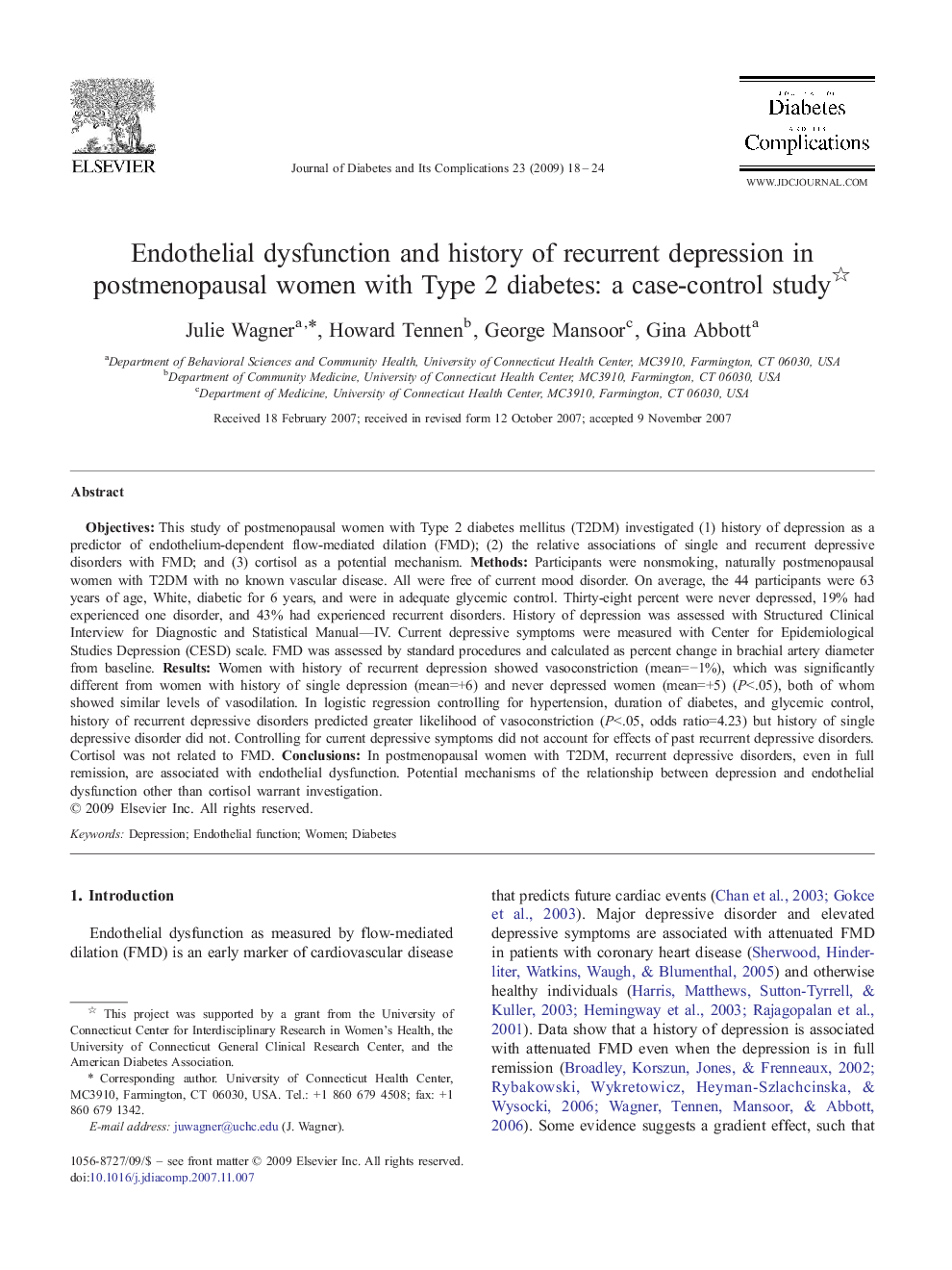| Article ID | Journal | Published Year | Pages | File Type |
|---|---|---|---|---|
| 2804690 | Journal of Diabetes and its Complications | 2009 | 7 Pages |
ObjectivesThis study of postmenopausal women with Type 2 diabetes mellitus (T2DM) investigated (1) history of depression as a predictor of endothelium-dependent flow-mediated dilation (FMD); (2) the relative associations of single and recurrent depressive disorders with FMD; and (3) cortisol as a potential mechanism.MethodsParticipants were nonsmoking, naturally postmenopausal women with T2DM with no known vascular disease. All were free of current mood disorder. On average, the 44 participants were 63 years of age, White, diabetic for 6 years, and were in adequate glycemic control. Thirty-eight percent were never depressed, 19% had experienced one disorder, and 43% had experienced recurrent disorders. History of depression was assessed with Structured Clinical Interview for Diagnostic and Statistical Manual—IV. Current depressive symptoms were measured with Center for Epidemiological Studies Depression (CESD) scale. FMD was assessed by standard procedures and calculated as percent change in brachial artery diameter from baseline.ResultsWomen with history of recurrent depression showed vasoconstriction (mean=−1%), which was significantly different from women with history of single depression (mean=+6) and never depressed women (mean=+5) (P<.05), both of whom showed similar levels of vasodilation. In logistic regression controlling for hypertension, duration of diabetes, and glycemic control, history of recurrent depressive disorders predicted greater likelihood of vasoconstriction (P<.05, odds ratio=4.23) but history of single depressive disorder did not. Controlling for current depressive symptoms did not account for effects of past recurrent depressive disorders. Cortisol was not related to FMD.ConclusionsIn postmenopausal women with T2DM, recurrent depressive disorders, even in full remission, are associated with endothelial dysfunction. Potential mechanisms of the relationship between depression and endothelial dysfunction other than cortisol warrant investigation.
